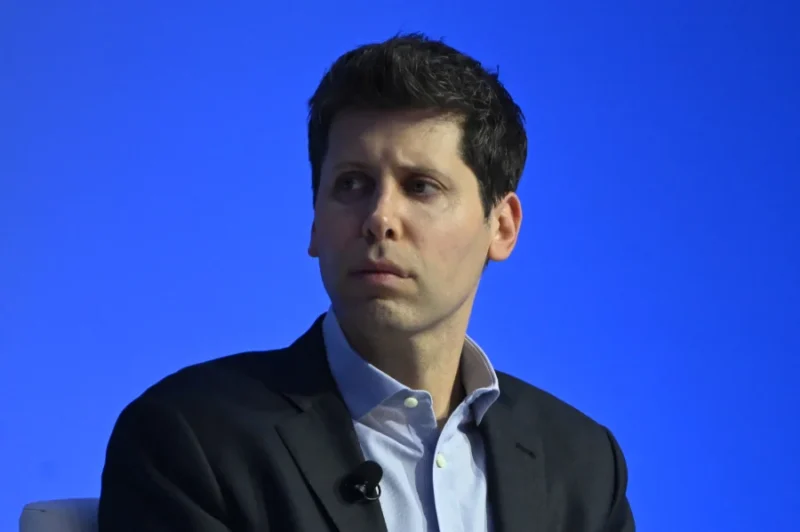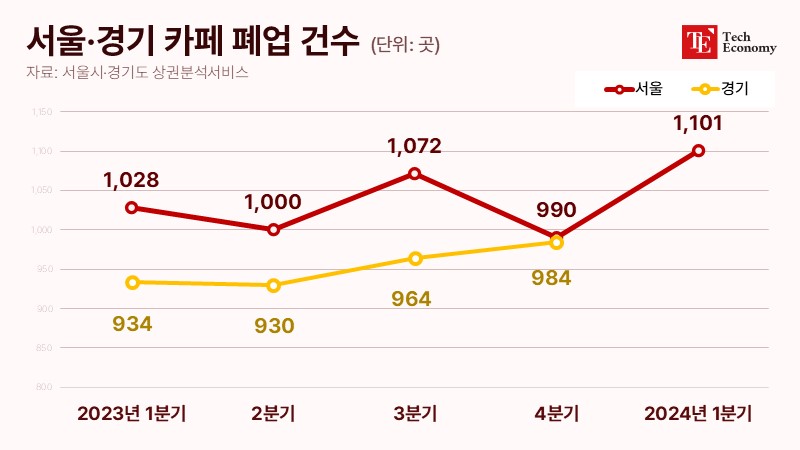[해외 DS] 오픈AI 쿠데타의 결말, “비영리 이사회 이윤 중시 세력에 무릎 꿇다”
오픈AI, 비영리 구조 붕괴로 실권은 자본주의 거물들 손에 실리콘밸리의 성장 우선주의 승리, "빠르게, 더 많이, 어떻게든" 비영리 가면 쓴 수익 창출 기업, AI 윤리 논란 악화 전망
[해외DS]는 해외 유수의 데이터 사이언스 전문지들에서 전하는 업계 전문가들의 의견을 담았습니다. 저희 데이터 사이언스 경영 연구소 (GIAI R&D Korea)에서 영어 원문 공개 조건으로 콘텐츠 제휴가 진행 중입니다.

지난 11월 17일 샘 올트먼(Sam Altman)은 오픈AI의 CEO 자리에서 해임됐다. 이사회는 올트먼이 ‘일관된 솔직함’이 부족하다는 이유로 갑작스럽게 그를 해고했다. 실리콘밸리에서 가장 사랑받던 CEO가 왜 갑자기 쫓겨났는지 의아해할 수 있지만, 관계자들은 오픈AI의 기업 구조를 원인으로 꼽았다.
오픈AI 이사진 물갈이, “무늬만 비영리”
오픈AI는 비영리단체지만, 그 밑에 영리단체를 소유하고 있다. ChatGPT를 판매하고 있는 조직이 바로 그 하위 영리단체다. 하지만 표면적으로는 비영리적 이익을 추구하고 인류를 이롭게 하는 일반인공지능(AGI) 구축에 집중하기 위해 존재한다는 이념을 표방한다. 그 덕택에 기술 산업의 성장에 따른 부작용에 대한 여러 비판과 비난으로부터 회사를 보호할 수 있었다.
당시 이사회는 그들의 이념에 걸맞은 구성원들로 이사회를 꾸렸다. 대표이사 샘 올트먼, 사장 그렉 브록먼(Greg Brockman), 수석 과학자 일리아 수츠케버(Ilya Sutskever), AI 안전 연구원 헬렌 토너(Helen Toner), 쿼라(Quora)의 CEO 아담 디안젤로(Adam D’Angelo), 로봇 공학자 타샤 맥컬리(Tasha McCauley)로 구성되어 있었는데, 이사회 멤버 중 한 명인 로봇 공학자 타샤는 AGI가 인류를 파괴할 수 있다고 우려하는 ‘효과적인 이타주의’ 운동과 깊은 관련이 있는 인물이었다.
하지만 올트먼이 돌아왔을 때의 이사회 구성원은 180도 달라졌다. 올트먼은 기술 이상주의자 대신 수십억 달러를 벌어들이기 위해 수십억 달러를 태우는 세일즈포스(Salesforce)의 전 공동 CEO인 브렛 테일러(Bret Taylor), 유일한 복귀 멤버인 디안젤로, 저개발 국가의 성장을 저해시키고 경제 예측을 잘못하는 것으로 잘 알려진 전 미국 재무부 장관이자 전 하버드대 총장인 래리 서머스 등 자본가들로 이사회를 채웠다. 설상가상으로 마이크로소프트(MS)가 이사회에서 투표권이 없는 관찰자 자리를 차지하게 되어, OpenAI의 모든 주요 결정에 대한 완전한 가시성을 확보했다. 투표 여부와 상관없이 MS CEO 사티아 나델라(Satya Nadella)는 OpenAI가 하는 모든 일에 직접적인 영향력을 행사할 수 있게 됐다고 풀이된다.
성장 중심적인 올트먼의 본격적인 지휘, 우려스러운 오픈AI의 질주
OpenAI는 비영리 단체로 남아 있지만, 자본주의의 힘에 완전히 종속됐다. 코슬라벤처스(Khosla Ventures)의 설립자 비노드 코슬라(Vinod Khosla)와 같은 실리콘밸리 권력자들의 결정에 따라 이사회 전체가 축출됐고, 앞으로도 그들의 입김에 따라 인사 결정이 좌지우지될 것이다. 이는 ‘효과적 가속주의자’, 즉 부패 경제의 열렬한 추종자들에게는 큰 승리를 안겨준 사건인 셈이다.
OpenAI의 비영리 구조에 대해 우리가 가졌던 환상은 자본주의의 매서운 손길에 의해 깨져버렸다. 더 큰 문제는 올트먼이 해고된 이유가 영리 조직과 비영리 조직 간의 갈등이라는 것 외에는 실제로 밝혀진 바가 없다는 점이다. 결과적으로 세계 최대의 인공지능 기업은 올트만을 재집권시킨 재정적 이해관계에 종속됐고, 벤처캐피털과 수조 달러 규모의 상장된 첨단기술기업에 의해 운영되고 있다. 따라서 올트만을 재집권시킨 것과 같은 방식으로 자본가들은 올트먼의 운명을 통제할 수 있으며, 또 그렇게 할 것이다.
올트먼은 실리콘밸리의 사고방식을 계승하는 인물이다. 올트먼이 미래의 AI칩 개발을 위해 중동의 정부계 펀드로부터 자금을 조달하려 했을 정도로, 올트먼은 어떤 대가를 치르더라도 성장해야 한다는 밸리의 사고방식을 그대로 실천하고 있다. 이제 OpenAI는 매출, 사용자 수, 역량 등 성장에 초점을 맞춘 기업이며, 생명과학과 같은 핵심 인프라에 제품을 판매하면서 제품이 실제로 개선되고 있는지는 전혀 고려하지 않을 것으로 우려된다. 드라마틱한 사건과 음모는 차치하고서라도, 이 사건은 밸리의 엘리트들이 자신들과 똑같이 생각하는 사람만 ‘다르게 생각’하기를 원한다는 것을 보여주는 경고이자 증거다.
OpenAI’s Soap Opera Collapse Bodes Ill for AI Benefiting Humanity
Whatever fantasies we may have had about the nonprofit structure of OpenAI have been eviscerated. While it remains a nonprofit, it’s proven entirely beholden to ruthless capitalism
On November 17 Sam Altman was fired as CEO of OpenAI, arguably the most prominent privately held tech company, famed for pioneering ChatGPT and sparking the current AI boom, as well as fears of “risk of extinction” from the technology.
Altman was sacked—briefly—for a lack of “consistent candor” with his nonprofit board. One might wonder how a company could suddenly oust Silicon Valley’s most beloved son, and it’s largely thanks to OpenAI’s convoluted, multitiered corporate structure. A nonprofit entity fully owns its subordinate for-profit entity, which sells ChatGPT—the same subordinate that Microsoft invested $10 billion into in January. This nonprofit structure exists—or existed, as you’ll find out—to focus on building an artificial general intelligence (AGI) that “benefits humanity”—a noble goal, and one that theoretically protected the company from the influence of the tech industry’s growth-at-all-costs “Rot Economy.” The board was at the time made up of Altman, the company’s then president Greg Brockman, its chief scientist Ilya Sutskever, AI safety researcher Helen Toner, Quora CEO Adam D’Angelo and Tasha McCauley, a robotics engineer who was one of the board members with deep ties to the “effective altruism” movement, which fears an AGI could destroy humanity.
The Vichy France–rivaling collapse of this board and its intended nonprofit firewall, all unable to withstand the unfettered force of raw money power, revealed in the Altman saga where the AI revolution is headed—and it’s wherever the most rich and powerful people in tech want it to go.
The firing’s first few days were a confusing whirlwind, where nobody, not even the board, would say exactly why Altman was fired. A day before, he was trumpeting a monumental breakthrough in ChatGPT onstage at the APEC conference in San Francisco. Reuters theorized that might have been Q* (pronounced “Q-star”), an artificial intelligence that can do grade school math (though there are now reports refuting this story), a significant breakthrough that would mean an artificial intelligence can learn rules. An $80-billion valuation was rumored for the company.
The board rushed to place former Twitch CEO Emmett Shear at the helm, which led to hundreds of OpenAI employees threatening to quit if Altman wasn’t put back on top. Meanwhile Microsoft hired both Altman and Brockman, with Microsoft CEO Satya Nadella demanding changes to OpenAI’s nonprofit governance structure.
A day later, Altman returned as CEO of OpenAI with a new, all-male board of directors, replacing technological idealists with a who’s who of Rot Economy capitalists such as Bret Taylor, former co-CEO of Salesforce (a company that burns billions to make millions), D’Angelo (the only returning member), and former U.S. secretary of the treasury and former Harvard University president Larry Summers, who is best known for calling for polluting less-developed nations and for blowing his economic predictions. Worse still, Microsoft now holds a “nonvoting observer seat” on the board, giving the bloated software titan full visibility into every major decision at OpenAI. Vote or not, Nadella will now have direct influence on everything that OpenAI does going forward.
While OpenAI remains a nonprofit organization, it’s proven entirely beholden to the forces of capitalism, forced to oust its entire board based on a decision that the potentates of Silicon Valley—men such as Khosla Ventures founder Vinod Khosla—didn’t like.
While the Valley applauds this as a “win” for the “good guys,” it’s important to see this situation clearly: a nonprofit was defanged by a conspiracy of extremely rich people who didn’t like its personnel decisions. This is a resounding victory for “effective accelerationists,” the fervent acolytes of the Rot Economy, who believe we should build technology as fast as humanly possible, no matter the cost. They don’t care that more than 30,000 people have been laid off in the Bay Area alone in the past two years or that many tech companies are deeply unprofitable and heavily reliant on unreliable Faustian bargaining with venture capital. OpenAI itself is on pace to make more than $1 billion of revenue in 2023, for example, and still isn’t clearly profitable. That’s likely because of the vast cloud computing costs that come with running large language models. Microsoft also has a tight hold on OpenAI’s leash—despite “investing” $10 billion in OpenAI last year, OpenAI has only received a fraction of that money, which is both divided into tranches and mostly made up of cloud computing credits.
Whatever fantasies we may have had about the nonprofit structure of OpenAI have been eviscerated by the dread hand of capitalism. Worse still, we don’t actually know why Altman was fired, other than that it was a conflict between the for-profit and nonprofit sides of the company. Regardless, the result is that the largest artificial intelligence company in the world is—corporate structure be damned—controlled by venture capitalists and a multitrillion-dollar public tech company. The nonprofit board is entirely subordinate to Altman, who is subordinate to the financial interests that put him back in power, which can (and will) control his destiny in the same shadowy way that they reinstalled him.
And that’s fundamentally worrying. While the execution of the coup was messy, it’s obvious that Altman’s mindset is locked intimately with the growth-at-all-costs Valley mindset—to the point that he was trying to raise money from sovereign wealth funds in the Middle East for a future AI chipset company. The new OpenAI is one that is laser-focused on growth—in revenue, in users and in capabilities—with no concern for whether its products are actually improving as they sell into critical infrastructure like the life sciences.
The OpenAI debacle is a dark day for the Valley, where the rich and powerful used their might to crush those who won’t aggressively and recklessly pursue technological progress at all costs. Putting aside the drama and intrigue, this is a cautionary tale, and proof that the Valley’s elite only wants you to “Think different” if you’re thinking exactly like they are.



























